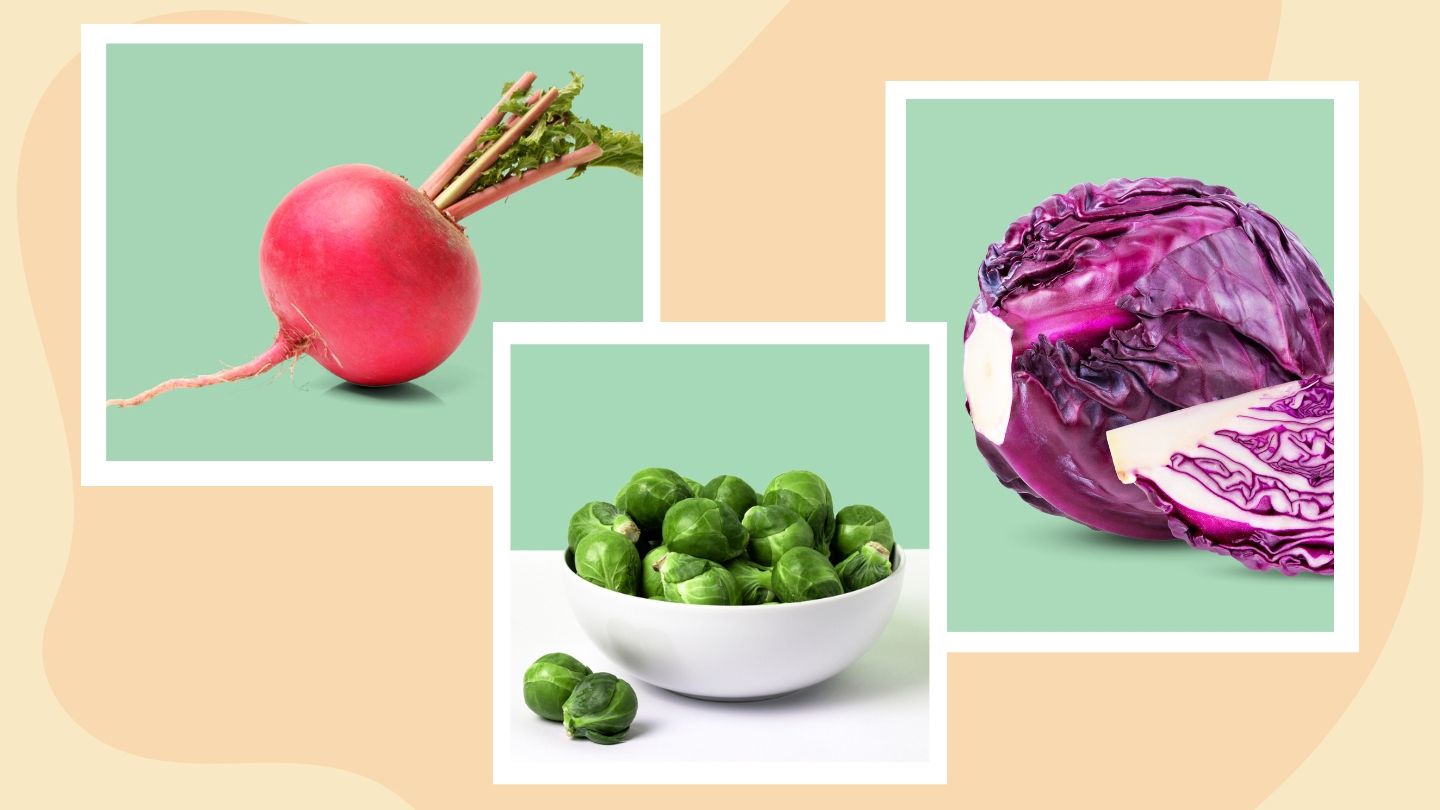Cruciferous vegetables offer a wide range of health benefits, thanks to their unique combination of nutrients and plant compounds. For example, they contain sulforaphane and indole-3-carbinol, which have been linked to a range of health perks. They may help protect cells, support hormone balance, and reduce the risk of chronic disease, among other benefits.
Here’s how these veggies support overall well-being.
Cruciferous Veggies May Improve Heart Health
Studies suggest that eating more of these veggies is linked to a lower risk of death from heart disease and other causes. Their heart-protective effects may come from isothiocyanates, compounds that reduce inflammation and oxidative stress.
“The sulforaphane in cruciferous vegetables also benefits heart health,” says Levin. “It’s been shown to reduce LDL or ‘bad’ cholesterol.”
In one recent, small study with nine participants, sulforaphane supplementation led to a 12 percent reduction in LDL cholesterol levels after 6 weeks and a 24 percent reduction after 12 weeks, compared with a minimal change in the placebo group.
Increased intake of cruciferous vegetables also gives heart health a boost by lowering blood pressure, according to one small study with 18 participants, and by combating atherosclerosis, per another study.
Cruciferous Veggies May Reduce Cancer Risk
Sulforaphane is a multitasking compound. It also plays a role in cancer risk. How? “It helps inhibit the growth of cancer cells,” says Levin. Indole-3-carbinol (I3C) is another compound found in this family of vegetables that’s been shown to activate tumor suppressor genes, which can prevent tumor growth.
Cruciferous vegetables are rich in several carotenoids (beta-carotene, lutein, and zeaxanthin), flavonoids, anthocyanins, and coumarins, all of which also contribute their own anti-cancer properties.
Cruciferous Veggies May Help With Gut Health
Just 9 percent of women and 5 percent of men get the amount of dietary fiber they need on a daily basis. Cruciferous vegetables may help close that gap.
They’re packed with soluble and insoluble fiber, which shore up your gut health by feeding all those beneficial bacteria that live there. That also helps increase the diversity of your gut microbiome and keep your digestion in order.
Cruciferous Veggies May Help With Brain Health
Want to keep your brain sharp? Pass the broccoli! Cruciferous vegetables contain compounds, such as indole-3-carbinol and diindolylmethane, that help protect your brain because they’re both antioxidant and anti-inflammatory.
Many cruciferous vegetables are also rich in vitamin E and K, beta-carotene, and folate. Vitamin E helps safeguard your cells (including your brain cells) from free radicals, which may prevent or delay cognitive decline. Vitamin K, on the other hand, has been shown to boost memory. Beta-carotene may also slow cognitive decline.
Cruciferous Veggies May Support Weight Management
Like most other veggies, cruciferous vegetables are low in calories. That means you can eat a lot of them without overshooting your daily calorie goals. They’re also high in fiber, which helps with weight management by helping you feel full longer after a meal, Mussatto explains.
Though there’s limited human research that looks specifically at cruciferous vegetables and weight, research suggests that combining more vegetable consumption with caloric restriction may help people reach and maintain a healthy weight.
Read the full article here




